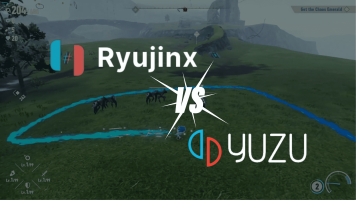The whole ordeal, to be honest, has highlighted just how risky the gaming business is right now. Sure, Concord's direction hasn't felt right since its reveal — a reveal that itself felt like a fumble — but we sure don't envy the teams out there building some of these massive games at the moment. Lots of big-budget projects just seem like a huge risk right now, especially if they're not coming from an already established franchise.
You can see why Microsoft seems to be going down the 'blockbuster games or bust' path, then, can't you? Yes, we understand that Concord perhaps isn't the best example of how to position a big new IP, but whatever angle you do take is still a big risk right now - especially with how expensive games are to make in the current climate. Why build a big new shooter when you can just release a new Call of Duty game?
With the acquisition of Activision Blizzard, it seems that Xbox is struggling to find a reason not to reach for the big guns. ActiBlizz owns some of the biggest IP out there, and although an expensive outlay at $70 billion, it presents less risk for Xbox in the long term. It doesn't have to go and build a team to compete with something like Overwatch, it outright buys Blizzard and its IP instead.
Matt Booty on Xbox refocusing after Bethesda studio closures: "These changes are grounded in prioritizing high-impact titles and further investing in Bethesda's portfolio of blockbuster games and beloved worlds which you have nurtured over many decades.
To double down on these franchises and invest to build new ones requires us to look across the business to identify the opportunities that are best positioned for success. This reprioritization of titles and resources means a few teams will be realigned to others and that some of our colleagues will be leaving us. We are making these tough decisions to create capacity to increase investment in other parts of our portfolio and focus on our priority games."
Look, we're not saying that it's impossible to build a big new IP from the ground up - we certainly hope it isn't anyway, because we always want to see creativity in the industry. We're just saying that doing so seems like as big of a risk as it's ever been, especially on a triple-a level, and we shouldn't surprised to see these platform holders and major publishers focus on what's already established. Whether being a new IP was Concord's biggest issue or not (we don't think it was), the bigwigs of the industry will surely look at it as another reason to greenlight Fallout 77 or Call of Duty 803. Buckle up, folks.






